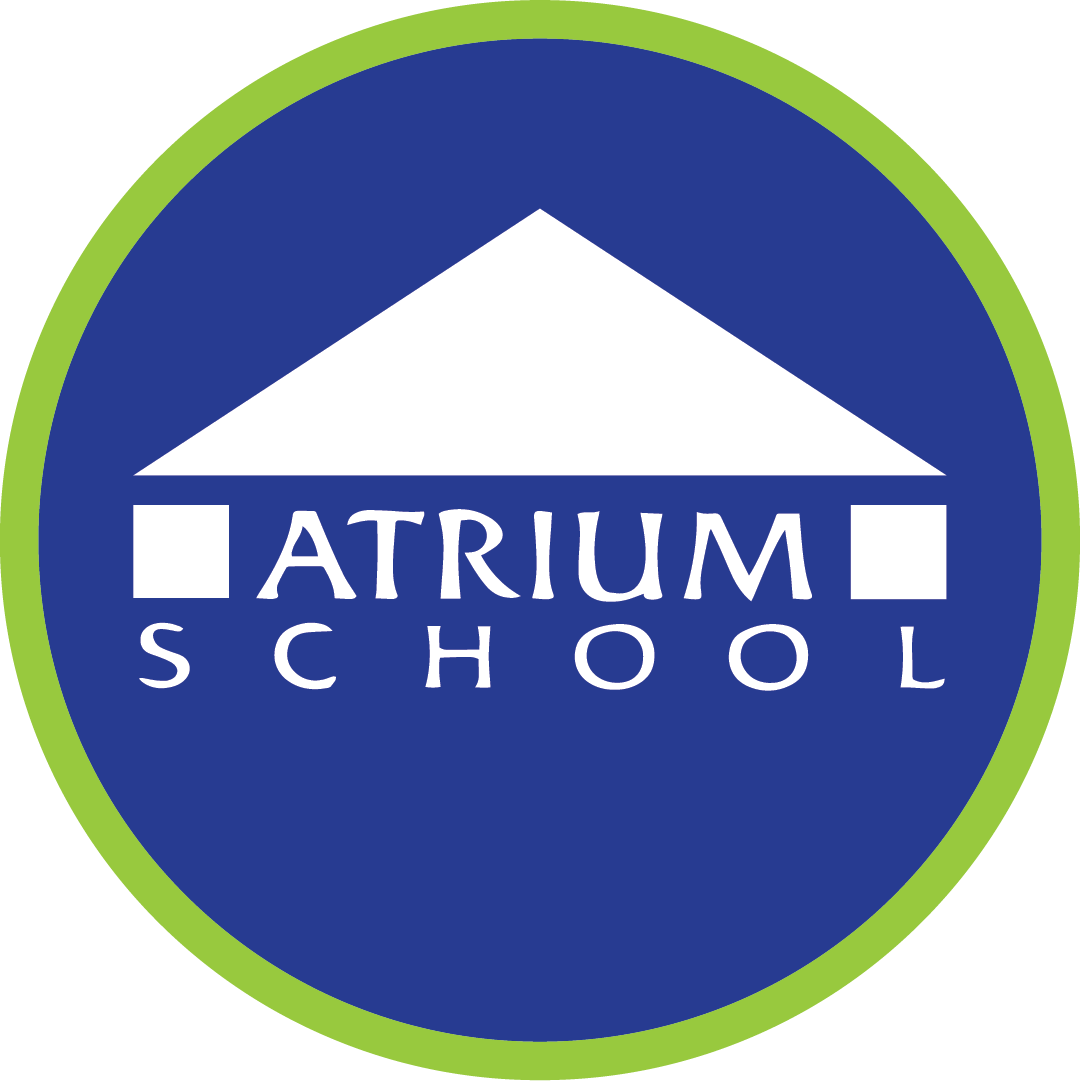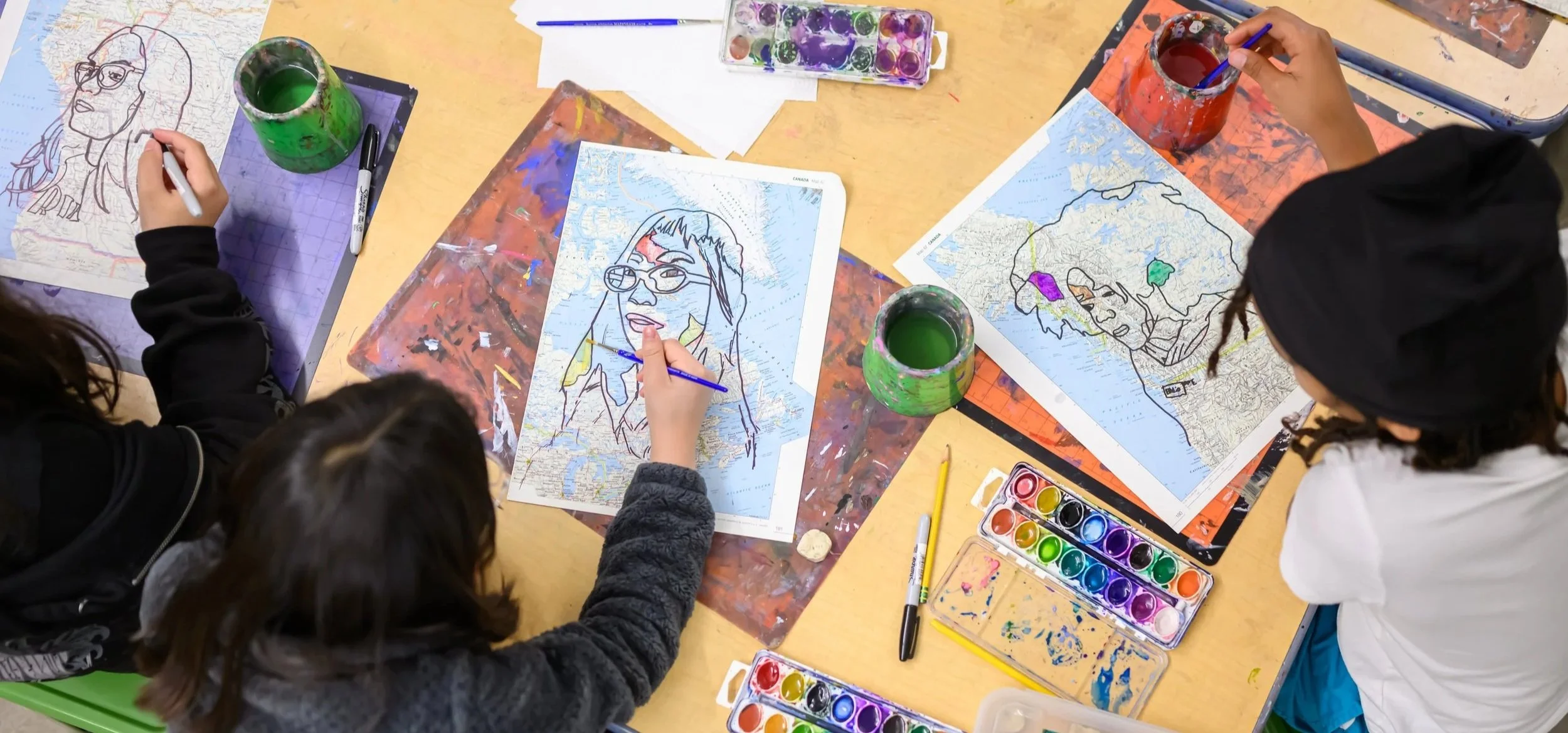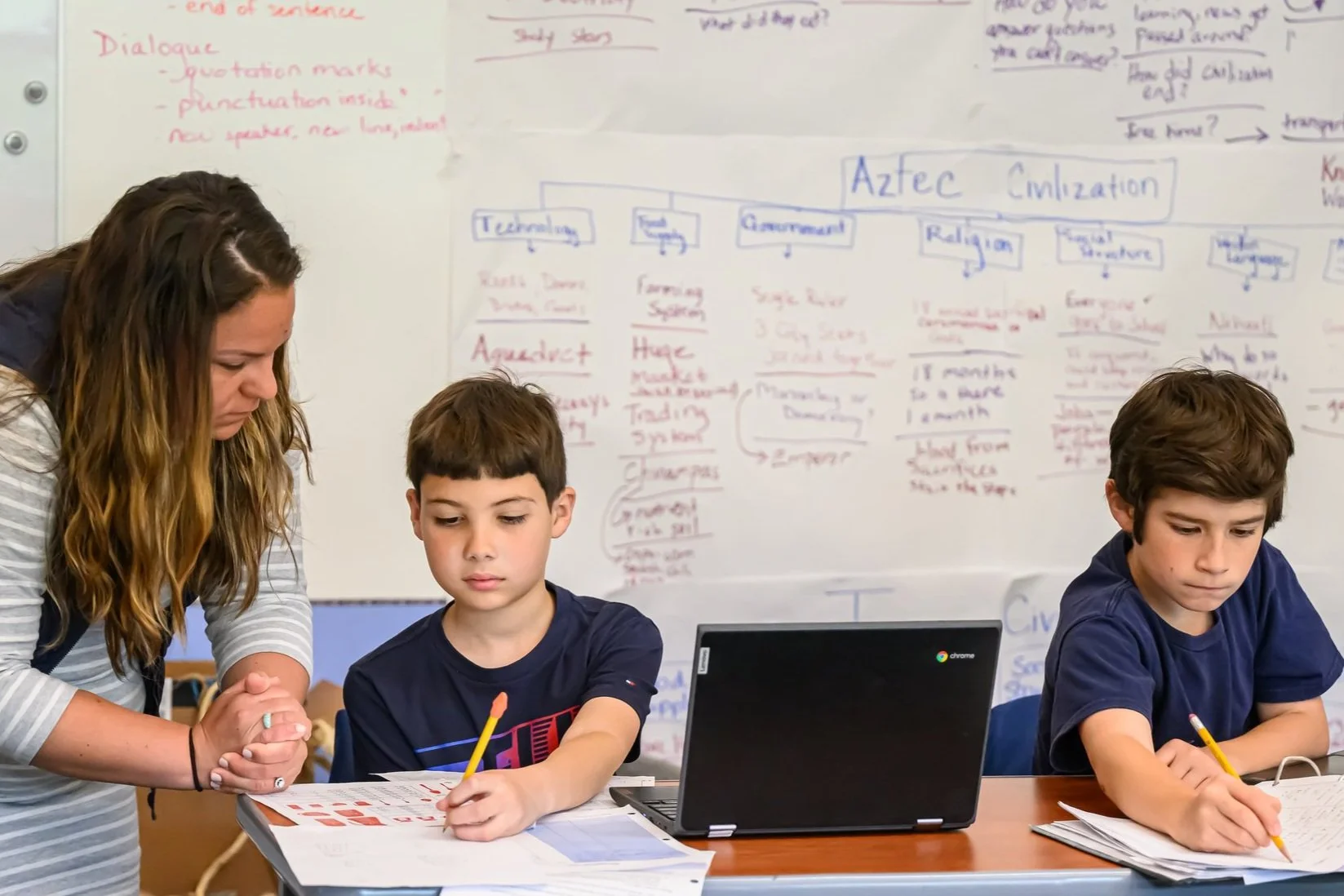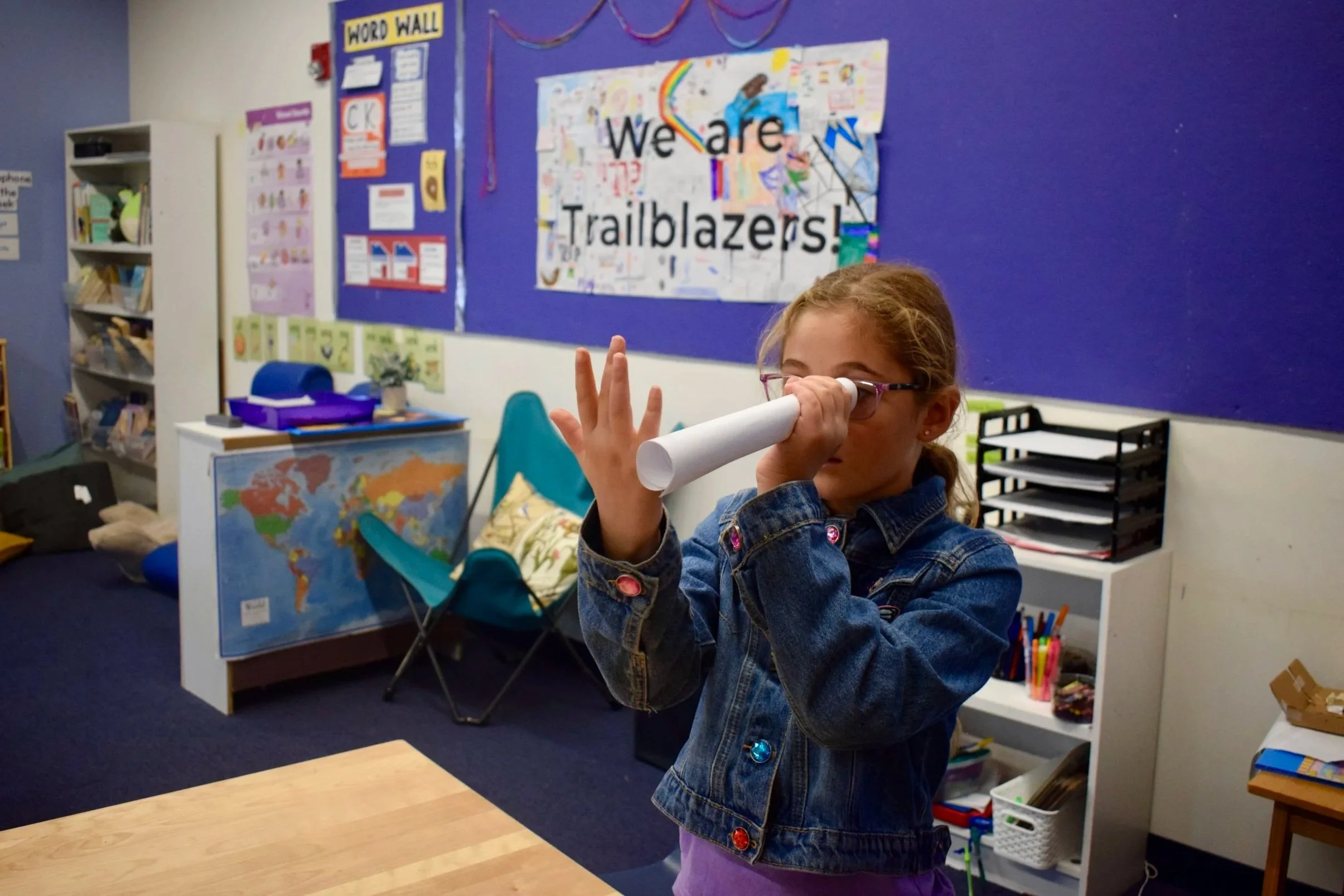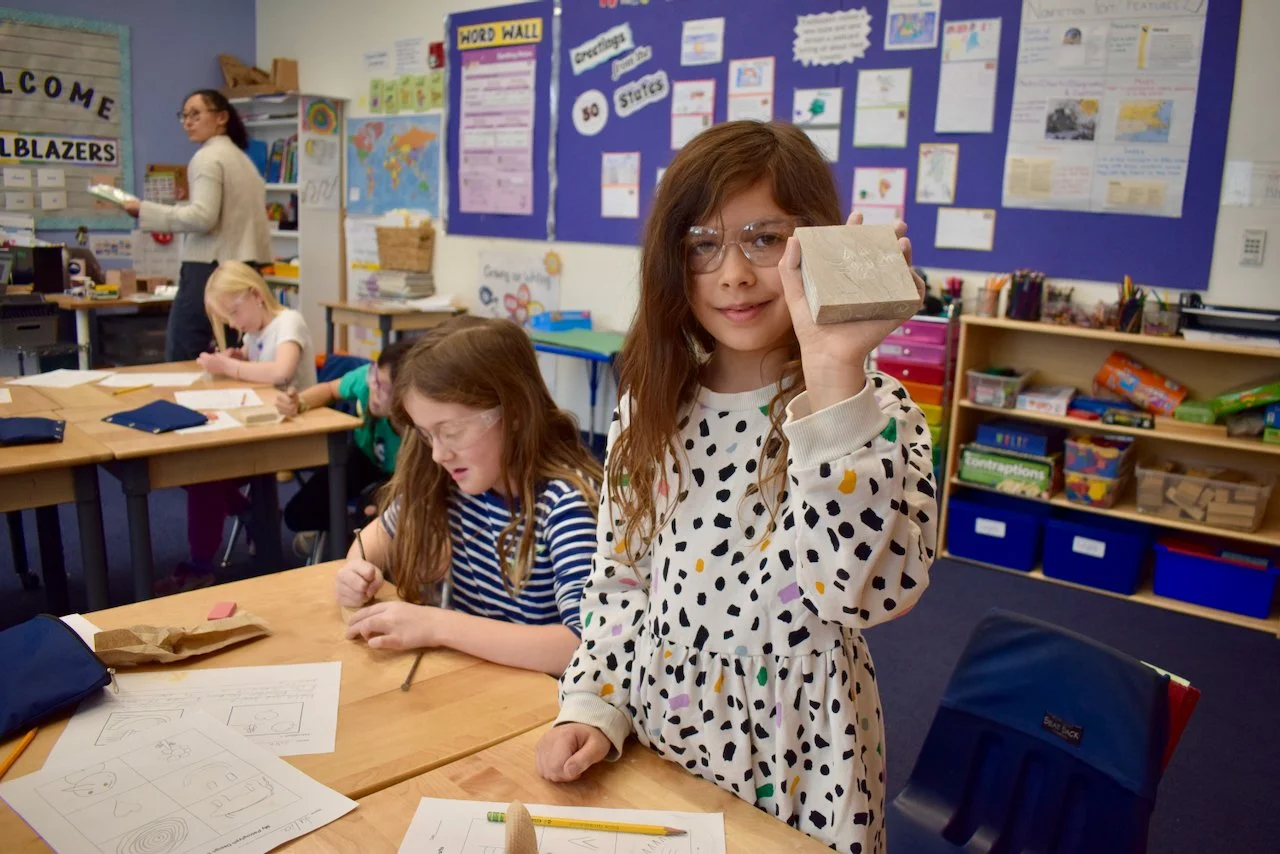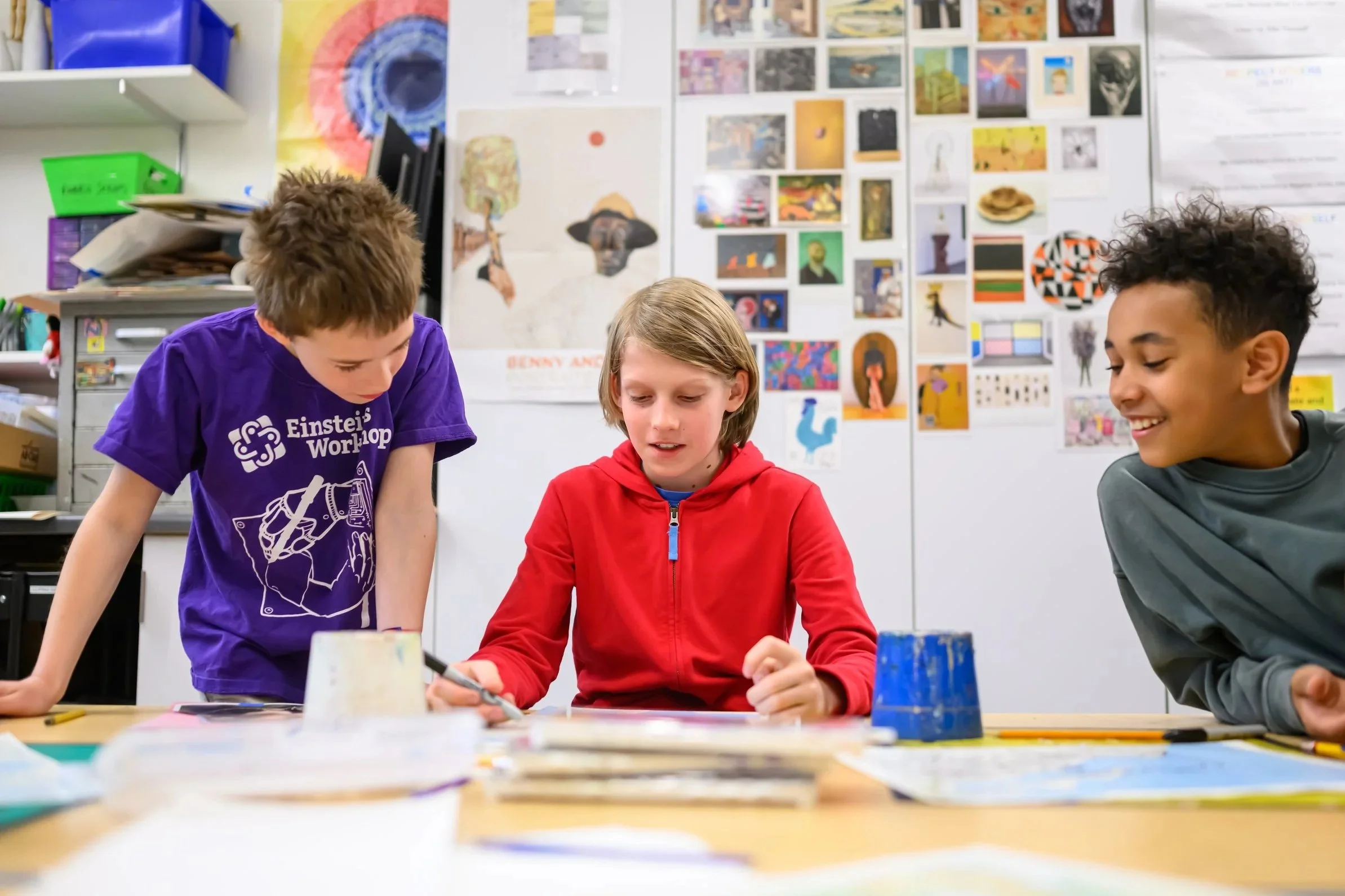Elementary (Grades 2 – 5)
Atrium’s Elementary grades are student-centered, richly experiential, and rooted in the belief that children learn best through active engagement, critical thinking, and collaborative experiences. Our program is designed to spark intellectual curiosity and creativity, empowering students to develop confidence in their identity and voice. In close-knit, multi-teacher classrooms, deep academic inquiry and challenge are integrated with social-emotional learning. While students progress from Grade 2 through Grade 5, they continue to grow their sense of self, gaining awareness and understanding of their unique learning profiles as they tackle increasingly complex learning challenges. The Elementary years develop essential skills – such as productive struggle, independence, and discourse – that prepare students for Middle School and beyond.
Building on the Foundations
Building on the essential experiences in Early Childhood, teachers design learning opportunities and activities through a variety of hands-on, cooperative projects both in the classroom and beyond the school walls. Our Elementary literacy program involves discrete Readers and Writers workshops; similarly, math is taught in a workshop model using the Investigations math curriculum. Science and social studies are explored through integrative, inquiry-based units focusing on a central theme. Students are guided through developmentally appropriate learning experiences within a rich, thematic program that balances structured routines with opportunities for self-directed exploration and autonomy. Our interdisciplinary focus enables all kinds of learners to develop skills and experience success in their academic pursuits.
Project-Based and Experiential Learning
At Atrium, project-based and experiential learning are central to the curriculum, allowing students to actively engage with real-world concepts through hands-on exploration and interdisciplinary inquiry. Immersive projects and fieldwork experiences give students the opportunity to investigate complex questions, problem-solve, and express their learning through deeply researched and creatively designed deliverables. Field trips to local destinations – such as Plimoth Patuxet Museums, Louisa May Alcott's Orchard House, Cradles to Crayons, Unity Farms, Boston Nature Center, the Museum of Fine Arts, and MIT’s engineering workshop – deepen understanding by connecting classroom learning to the wider world.
Family Engagement
At Atrium, we value and depend on close and trusting relationships with parents and guardians. These partnerships are essential to our strong sense of community and to meeting each student’s individual needs. As children grow progressively more autonomous in the Elementary years, ongoing family involvement – through classroom presentations, curriculum celebrations, all-school assemblies, community events, triannual family-teacher conferences, and more – keeps families connected and engaged in school life and their child’s learning experience.
Social-Emotional Learning (SEL)
In Atrium’s Elementary classrooms, children continue to develop the self-awareness, self-regulation, and relational skills essential for constructively managing their growing emotions and building healthy relationships both in and out of school. Social-emotional learning at Atrium is deliberately designed and integrated into the broader curriculum, and our teachers and staff are trained to support students as needs arise. Through Restorative Justice Circles and other structured conversations, students are given opportunities to practice key skills like empathy, active listening, communication, perspective-taking, and responsible decision-making. Ample time is dedicated to cultivating a positive and supportive classroom community, enabling students to openly share their feelings, understand the impact of their actions on others, and work collaboratively to resolve conflicts.
A Diverse and Inclusive Environment
Diversity and inclusion are essential components of learning at Atrium throughout the grades. In the Elementary grades, students are taught to value the wide range of perspectives, cultures, and experiences through core projects, such as the Upstander Studies, Activist Presentations, and the Climate Houses project. Through these experiences, students develop a deep understanding and empathy for others, recognizing the invaluable and far-reaching benefits of embracing differences and including people with lives and viewpoints different than their own. A throughline of diversity, equity, inclusion, and justice studies permeates the Atrium curriculum and is foundational to the school’s mission and vision.
Collaborative Approach
Collaboration is at the heart of the Elementary experience. Multi-teacher teams work closely to design integrated learning experiences and provide holistic support for each student. Student collaboration is fostered through group projects, workshops, and cross-grade partnerships, building strong peer connections and social-emotional skills. Specialists in art, library, music, performing arts, physical education, and Spanish partner regularly with classroom teachers to further support a dynamic learning environment.
